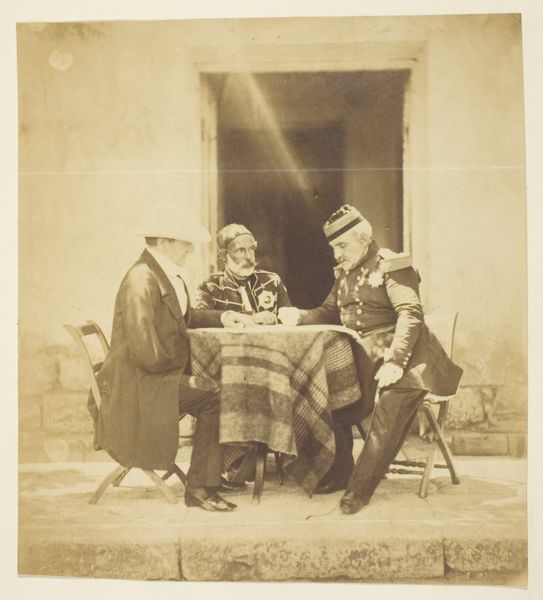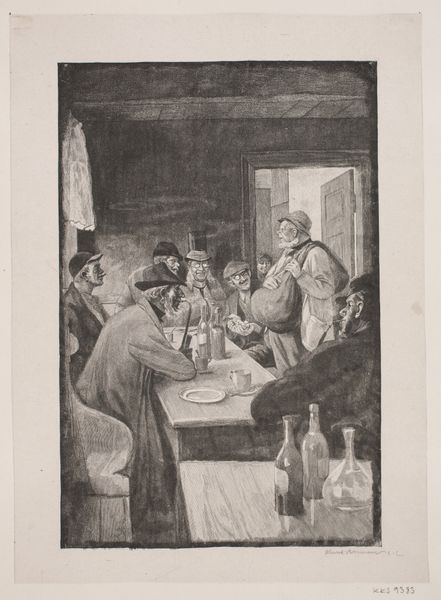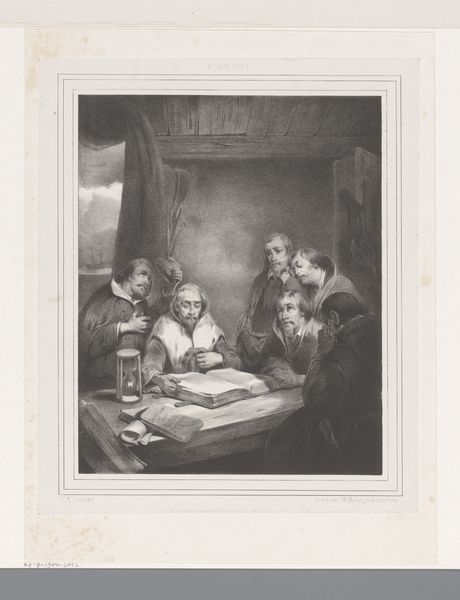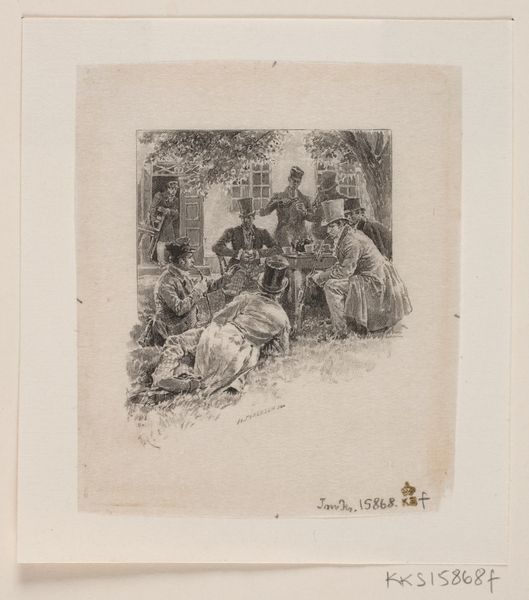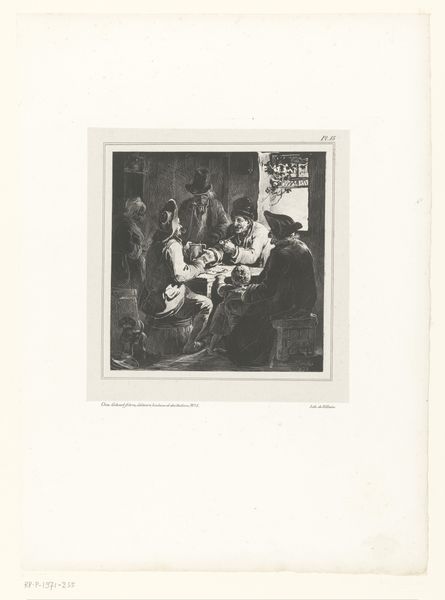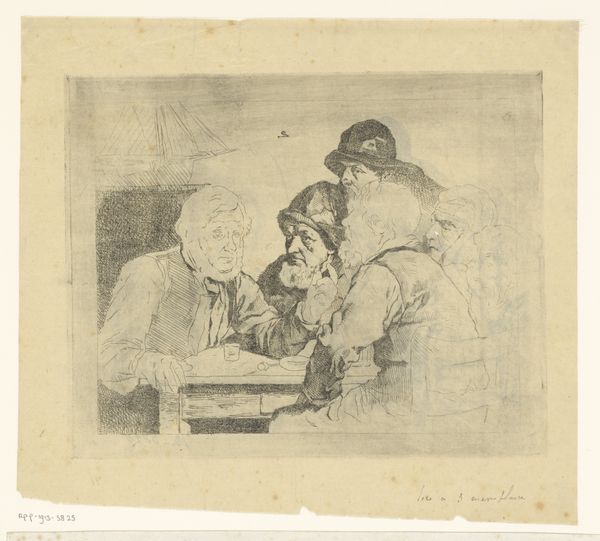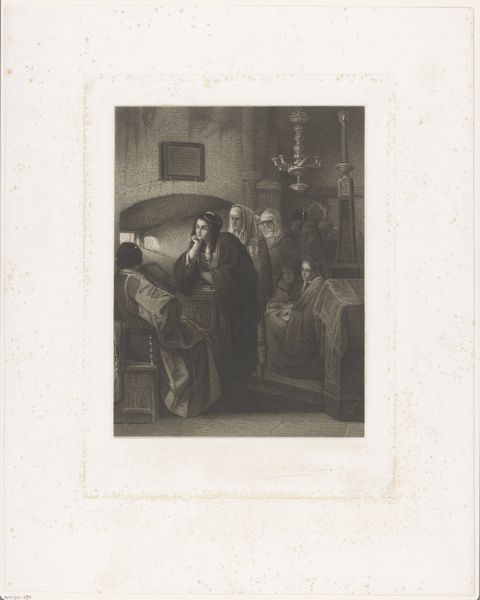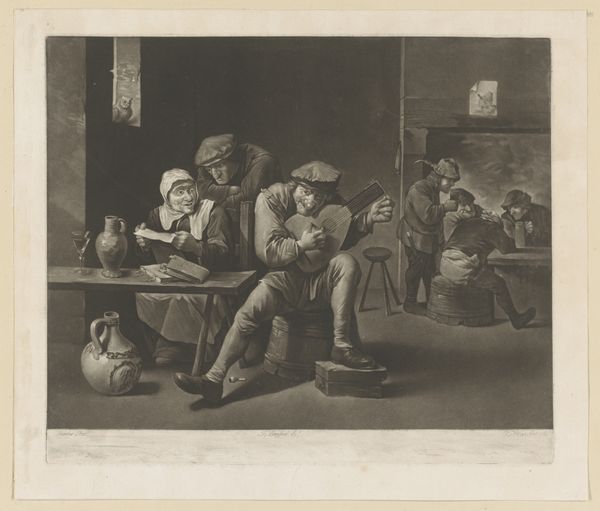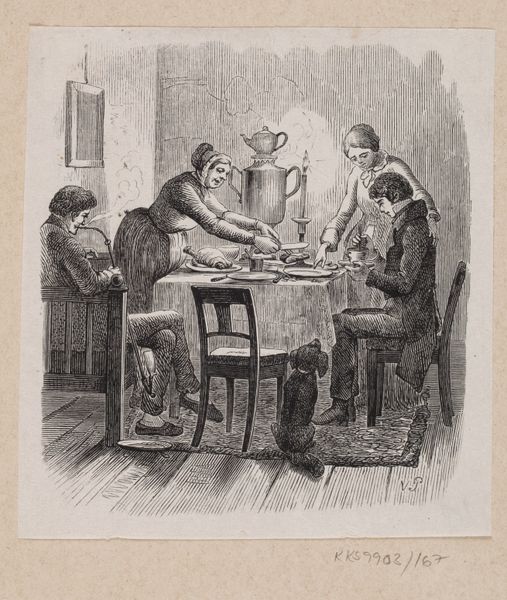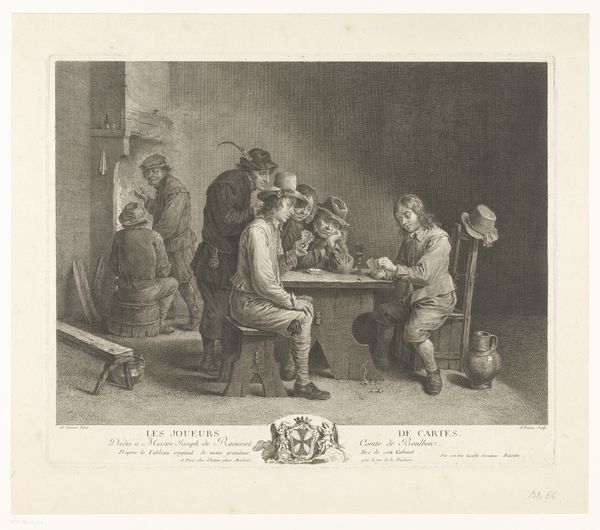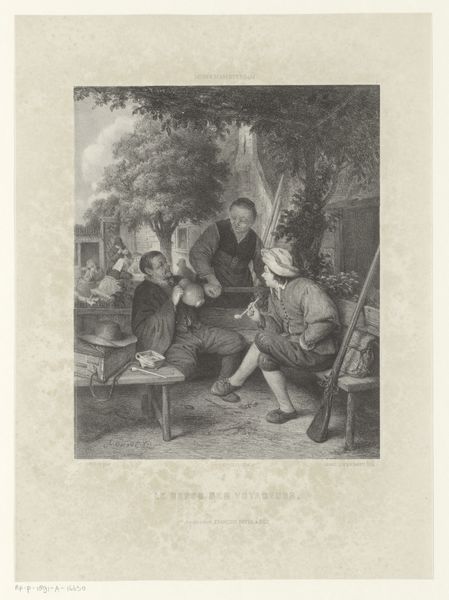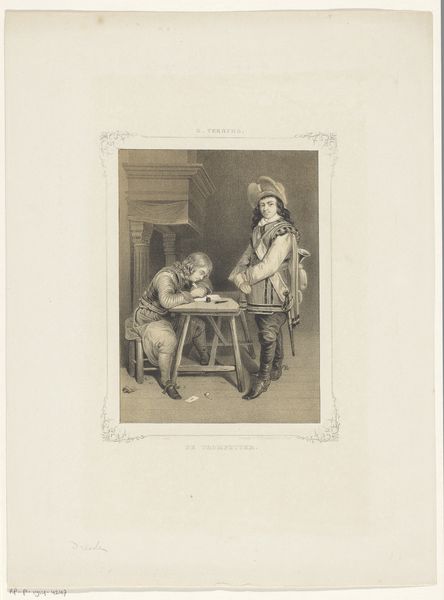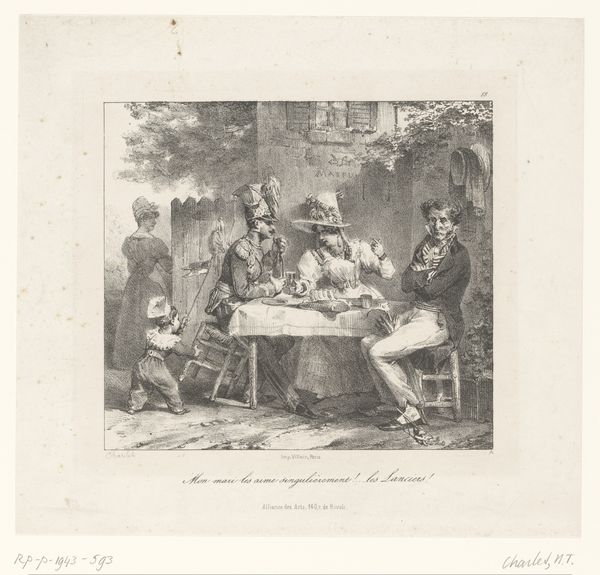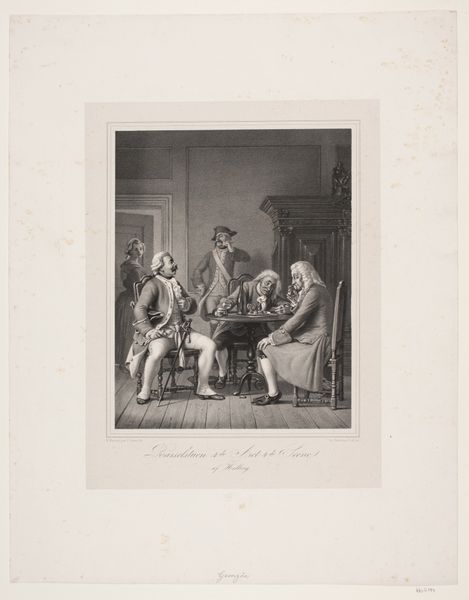
The Council of War on the Morning of the Taking of the Mamelon. Lord Raglan, Omar Pasha, Marshal Pélissier 1855
0:00
0:00
Copyright: Public Domain
Curator: "The Council of War on the Morning of the Taking of the Mamelon. Lord Raglan, Omar Pasha, Marshal Pélissier." It’s a photograph from 1855 by Roger Fenton. You find it at the Met in New York City. What do you think? Editor: It feels oddly casual for a war council! The light, the plaid tablecloth... there's something surreal about these very powerful men captured in what looks like an ordinary outdoor setting. Almost too peaceful. Curator: It’s more than just casual, it is a carefully constructed performance. These men were at the height of power. Think of them strategizing for battle, trying to appear composed. Editor: Compositionally, I'm struck by how Fenton uses the background to flatten the space. The dark doorway, for example, serves as a void that both contains and emphasizes the figures. And the light creates interesting planes. Look at how the edge of the building cuts the men off. Curator: Oh, but the mood, you have to agree, is less bombastic, more intimate, don’t you think? The slight grain of the gelatin-silver print gives it such an accessible feel...It makes me think, what were they truly like in that moment? The vulnerability! Were they scared? Editor: Vulnerability maybe. I’m wondering more about the visual dialogue between formality and spontaneity, especially in relation to war. What’s intriguing to me is how Fenton controls the scene. I wonder if they chose that plaid tablecloth for the photo, for example, or if it was a natural artifact. Curator: Exactly, Roger Fenton was like a war choreographer, stage managing it all, from capturing fleeting, almost stolen glimpses. It brings the men off of a horse and closer to us, doesn’t it? And, it certainly contrasts how wars are portrayed nowadays, wouldn’t you say? It certainly seems he’s aiming for something, and yet not revealing the full story, only offering snippets... Editor: Absolutely. Photography at this stage was still relatively new. War photography, particularly. What narratives should it follow? That balance between portraying truth and serving a specific political narrative seems central to its power. It is amazing how such a rigid geometric structure gives the impression of capturing a slice of reality, it feels off, but, then again, it may just feel modern! Curator: I think, by the way, this is exactly what makes this work so haunting. In its quietness, Fenton forces us to confront our own romanticized notions of warfare and leadership. Editor: Indeed, and perhaps recognize the inherent artificiality in any attempt to capture such complex and morally ambiguous realities on film.
Comments
No comments
Be the first to comment and join the conversation on the ultimate creative platform.
